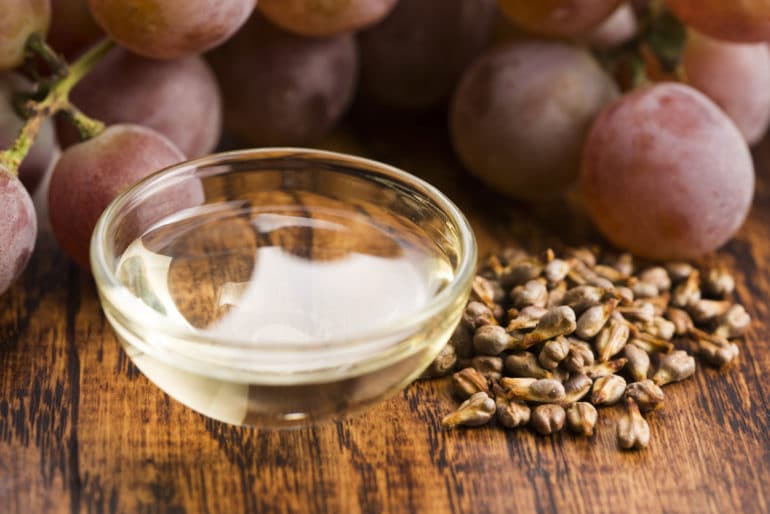Don’t spit it out. Eat it! The ingredients of grape seeds, especially the plant substances known as OPC, have vasodilatory properties that positively influence the cardiovascular system. In addition, these polyphenols in their concentrated form – especially as extracts in food supplements – can also protect the body from stress.
He who is calmer without stress, has also less problems with the blood pressure. An interesting approach to contribute to its reduction is offered by the polyphenols – secondary active plant substances, which we often know as aromatic or colouring substances – in grape seeds. These substances, known as oligomers proanthocyanidins – OPC for short – can help to dilate blood vessels. Thus the blood can flow unhindered and the pressure of the flow and with it the risk for cardiovascular diseases decreases.
Within 6 weeks of taking grape seed extract, a reduction of blood pressure by 5.6 % was noticeable.
Vascular-supporting effects
American researchers at the Illionois Institute of Technology in Chicago have now tried to get to the bottom of this effect scientifically. For 6 weeks, test persons were given a daily fruit juice with either a placebo or 300 mg of an OPC-containing grape seed extract. At the beginning of the study, the participants had blood pressure values between 120 and 139 mmHg (first value of the measurement, systolic value, expressed in millimeter mercury column) and 80 to 89 mmHg (second value of the measurement, diastolic value).
The result after 6 weeks: in those persons who had consumed the OPC-rich grape seed extract, the researchers were able to determine a reduction in systolic blood pressure by an average of 7 points from 125 to 118 mmHg. While this resulted in a reduction of 5.6 % compared to the initial value, the value in the control group supplied with the placebo did not change.
The effect was particularly clear in those participants with the highest baseline value. What the researchers additionally confirmed in their assessment of the effectiveness of the grape seed extract: 4 weeks after the end of the daily intake, the blood pressure values of the OPC group had also returned to the initial value.
“Braking” high blood pressure in advance
Of course, the question now arises as to how much this reduction of 7 points can affect. As it turns out, there is a large change for vascular health: If the first blood pressure value (systolic value) is lowered by only 2 mmHg, this also reduces the risk of cardiovascular disease by 7%.
Doctors call a blood pressure with a systolic value between 120 and 140 mmHg a “prehypertensive phase” (prehypertension). If it is determined that one has a tendency for high blood pressure in the family, then one should examine its blood pressure values regularly. Supporting measures should be taken such as an increase in exercise, a Mediterranean nutrition rich in Omega 3 fatty acids, weight reduction, or even alternatives such as grape seed extract. Likewise, blood pressure-lowering “team players” vitamin D and magnesium can assist as well.













